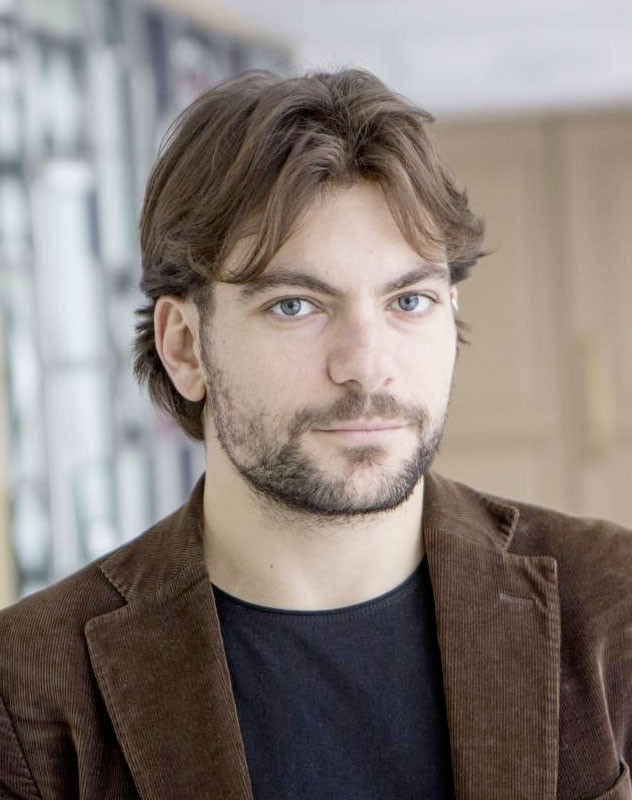The KLI support international groups of scholars in the life sciences working on interdisciplinary projects to conduct their groundbreaking research at the institute. KLI Focus Groups and Working Groups aim to develop ideas on a particular subject and generate suggestions for action. The participants have different scientific backgrounds and strive to develop specific, practical goals.
Event Details

Roberto Cazzolla Gatti
KLI Colloquia
Self-cognition with Sensorial Diversity
Roberto CAZZOLLA GATTI (University of Bologna)
2022-12-01 15:00 - 2022-12-01 16:30
KLI
Organized by KLI
To join our colloquium please register with Zoom:
https://us02web.zoom.us/meeting/register/tZwsdeiorD4tGNM_-rFsw-d5kv2lrzF7s6Go
After registering, you will receive a confirmation email
containing information about joining the meeting.
Topic description / abstract:
Self-awareness has always been a central theme in philosophical and biological research since ancient times. In the temple of Apollo at Delphi, the exhortation “Know yourself” is inscribed in Greek, an invitation to men to understand their own finitude, to understand their limits. Then René Descartes wrote, in Latin in his Discourse on the Method, “Ego cogito, ergo sum, sive existo” (I think, therefore I am, or I exist) to underline the fact that existence derives from our awareness as thinking beings capable of reflecting on ourselves. The self-recognition (i.e. the ability to recognize oneself) of living beings has been scientifically examined by studying the behavior of animals and children in response to their reflection in the mirror. However, the idea behind this test, which is that understanding the concepts of “self” and “other” is proof of self-awareness, has been contested several times. According to Carl Safina, for example, it is still unclear whether animals that do not recognize their reflection in the mirror are not truly self-aware. Recently, new tests based on different senses provided significant clues of animals’ self-awareness. These innovative approaches highlight the need to shift the paradigm from the anthropocentric idea of consciousness into a specific perspective for each species.
Biographical note:
Roberto Cazzolla Gatti, Ph.D. is an Italian ecologist, conservation biologist, and evolutionist. He is an Associate Professor of Biological Diversity and Conservation at the Department of Biological, Geological and Environmental Sciences (BiGeA) of the Alma Mater Studiorum – University of Bologna, Italy, where he is also a member of the BIOME – Biodiversity and Macroecology Lab. Moreover, he serves an an External Faculty Member of the Konrad Lorenz Institute for Evolution and Cognition Research in Austria. From 2015 to 2021, he served as an Associate Professor at the Biological Institute and as the Head and Scientific coordinator of the International MSc Program in Biodiversity of the Tomsk State University, in Russia. In parallel to his professorship in Russia, in 2021, he also worked for a semester as an Associate Professor of Ecology at the Polytechnic of Rouen (UniLaSalle) in France; in 2020-2021 he was a Senior Research Fellow of the Konrad Lorenz Institute for Evolution and Cognition in Austria; in 2018-2019 he joined the Department of Forestry and Natural Resources of Purdue University in the USA as a Research Associate; and in Summer 2019 he was a Visiting Professor of the Beijing Forestry University in China to teach Biodiversity to international Ph.D. students. In 2018, he was included among the 105 interdisciplinary “visionary smart thinkers” by the renowned magazine “Motherboard” of the Vice Media Group. His research deals with the differing shades of Biological Diversity and Conservation (plant, animal, ecosystems), and Global Environmental Protection occurring, therefore, at the interface between macroecology, evolutionary biology, biogeography, and behavioural ecology. In his spare time, he also writes books and popular scientific articles, paints naturalistic watercolours, hikes and works as a freelance documentary photographer and wildlife filmmaker.


